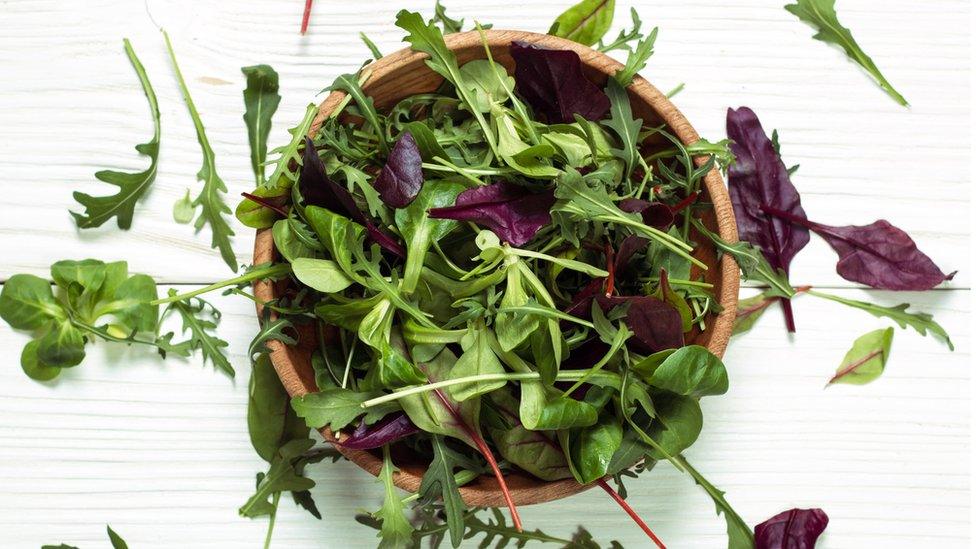Washing salad and vegetables: What is the best technique
- Published
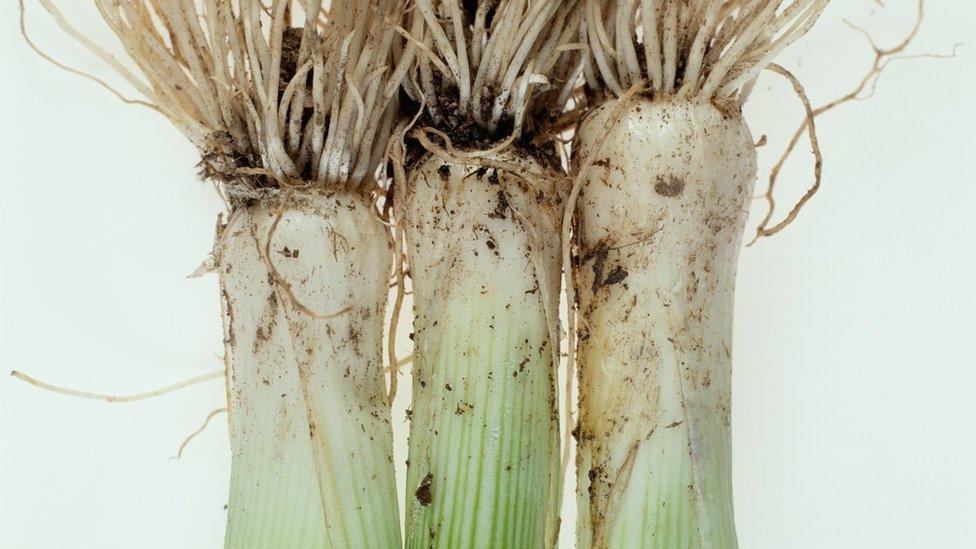
People in the UK have been advised to thoroughly wash mixed salad leaves amid concern that this food could be the source of a recent E. coli outbreak. The bug has affected more than 150 people and killed two.
Public Health England, external advises people to remove any loose soil before storing vegetables, and wash all vegetables and salads thoroughly that will be eaten raw unless they have been pre-prepared and are specifically labelled "ready to eat".
Health officials admit that washing foods is not 100% fail-safe, but it gives people the best chance against infection.
But what exactly are the best ways to wash your greens? The BBC asked two food industry professionals for the best practice in food safety and hygiene when it comes to salad and vegetables.
Camilla Schneideman worked in the food industry for 18 years having run her own restaurants abroad and in the UK, and is currently the managing director of the Leiths Cookery School in London.
Rosalind Rathouse is a professional cook with more than 50 years of experience, who runs the Cookery School in central London.

What is the gold standard for washing salad and veg?
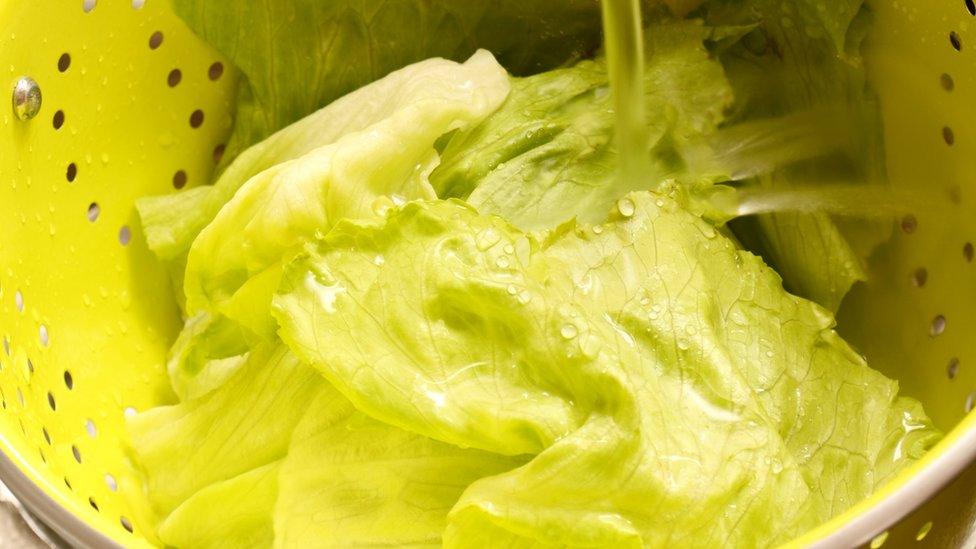
It's important to bear in mind that no method is absolutely certain to remove all E. coli bacteria when it comes to raw food - but there are things you can do to reduce the risk as far as possible.
"Let things soak," says Ms Schneideman, whose first job in a restaurant was solely to wash salad.
"Submerge it in cold water and leave it there for up to 20 minutes to let the soil particles come loose, then take it out and rinse it again," she adds.
She recommends the submersion technique for anything that grows in the ground, and may still be harbouring soil particles, in particular things like lettuce - for which you should break leaves off before soaking - and radishes, leeks and herbs.
However, depending on how you are cooking them, Ms Schneideman cautions against soaking mushrooms because, although they can often be dirty with soil, they "absorb like sponges".
Instead she suggests brushing the soil off and rinsing, and "if you intend to saute the mushrooms the heat will kill the bacteria regardless".
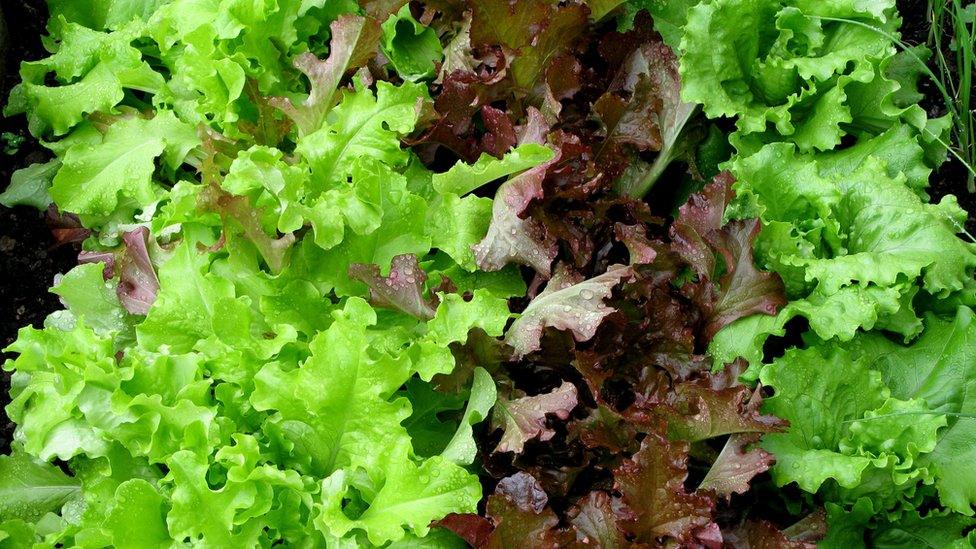
Ms Rathouse's advice is to wash all fruit and vegetables "very, very thoroughly" under running water, having first removed and thrown away any roots with soil or sand. The only vegetables she would soak are potatoes, to loosen any soil before thoroughly washing them.
With a whole lettuce, she advises first taking off the outside leaves - which are most likely to come into contact with bacteria - and either throwing them away, or using them in a cooked dish such as soup.
When it comes to mushrooms, Ms Rathouse washes them in a big bowl of water, before rinsing them well in running water and drying them with kitchen towel.
"If they're a bit waterlogged, so be it. Put them on a high heat and the water will evaporate. Safety above everything else," she says.
Her main advice is to be scrupulous about making sure hands and surfaces are clean to avoid transferring bacteria into and around the kitchen.
In her cookery school, people leave their apron in the kitchen if they go to the toilet, and she keeps objects like phones, which may carry bacteria from place to place, away from cooking areas.

How do you avoid soggy lettuce or herbs?
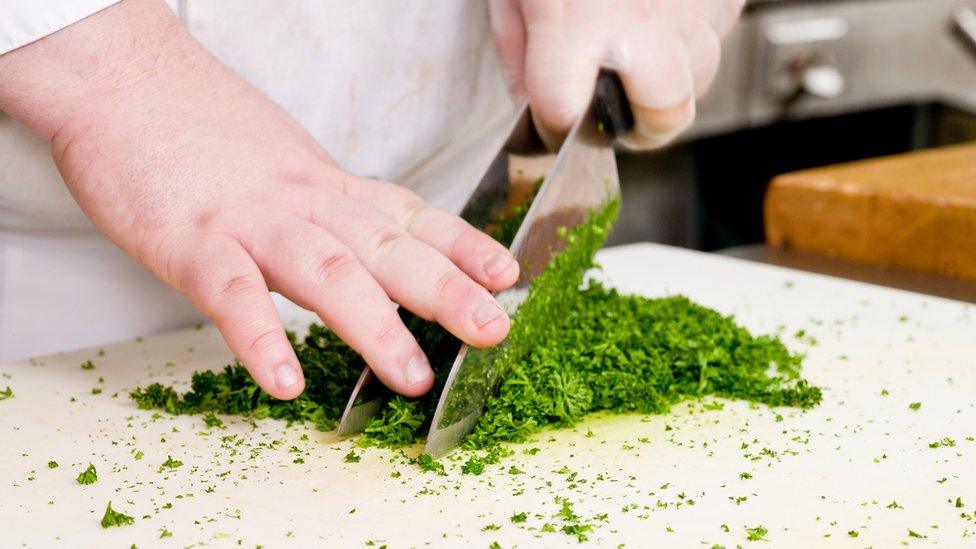
"If you've got a salad spinner use that, if not give them a good old shake in the garden," says Ms Schneideman.
"Soggy lettuce really isn't very nice to eat so shake it well and leave it to dry on a piece of kitchen paper for the best results."
In terms of storing herbs she says the best way is to put them into a plastic bag with a piece of kitchen paper and keep in the fridge.
"Herbs just stuck in a glass of water will last no more than a few days, whereas with this method you can make them last for up to two weeks," she adds.
Ms Rathouse advises storing all salad and vegetables in a cold environment, because it slows down the rate at which bacteria multiply.

What about ready-to-eat pre-packed salads?
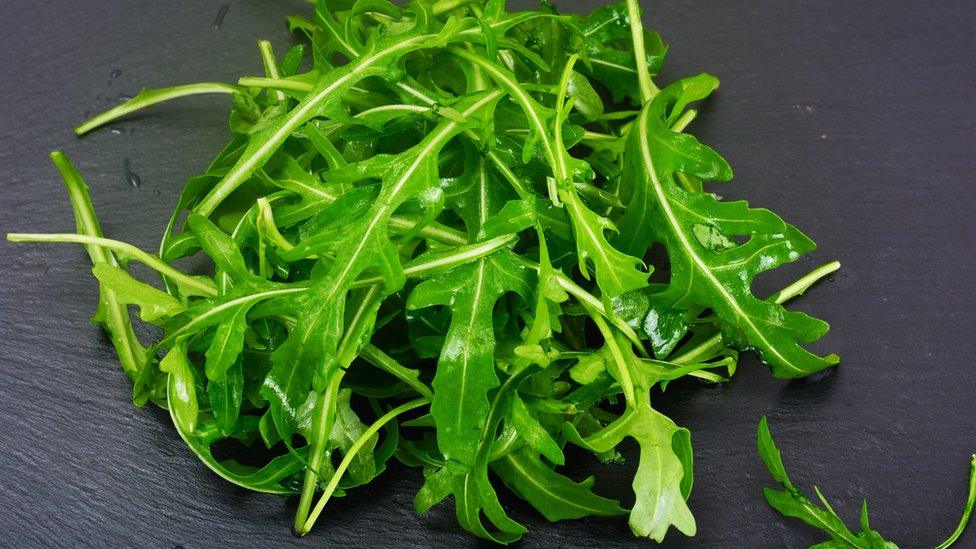
Pre-packed salads are often washed in a low-chlorine solution to kill off the bugs, according Ms Schneideman, so eating straight from the bag is unlikely to harm you.
"It comes down to personal choice whether you want to give it an extra wash," she said.
Ms Rathouse says "we always wash everything, especially if we're going to eat it raw. We don't use much bagged salad or spinach, but if we did, we would definitely wash it."

Is there a short cut for leeks?
Yes. Obvious one but if you are slicing leeks Ms Schneideman recommends cutting them to size first, before you start to soak and wash.
"This way the soil particles between the layers will fall to the bottom of the bowl when you soak," she says.
Ms Rathouse has a different technique: "I would cut off the parts with soil on, then top and tail them. Then I would fan the layers out like the pages of a book as I wash them, to let the water run between layers."
She point out that leeks are usually eaten cooked however, so any bacteria would be killed in the process.

If it's organic, do I still need to wash it?
Ms Rathouse and Ms Schneideman agree - yes. Bacteria can get on to fruit and vegetables in several ways. They may be present in water used for irrigation, organic fertilisers, or droppings from birds and other animals that go into the earth.
- Published18 July 2016
